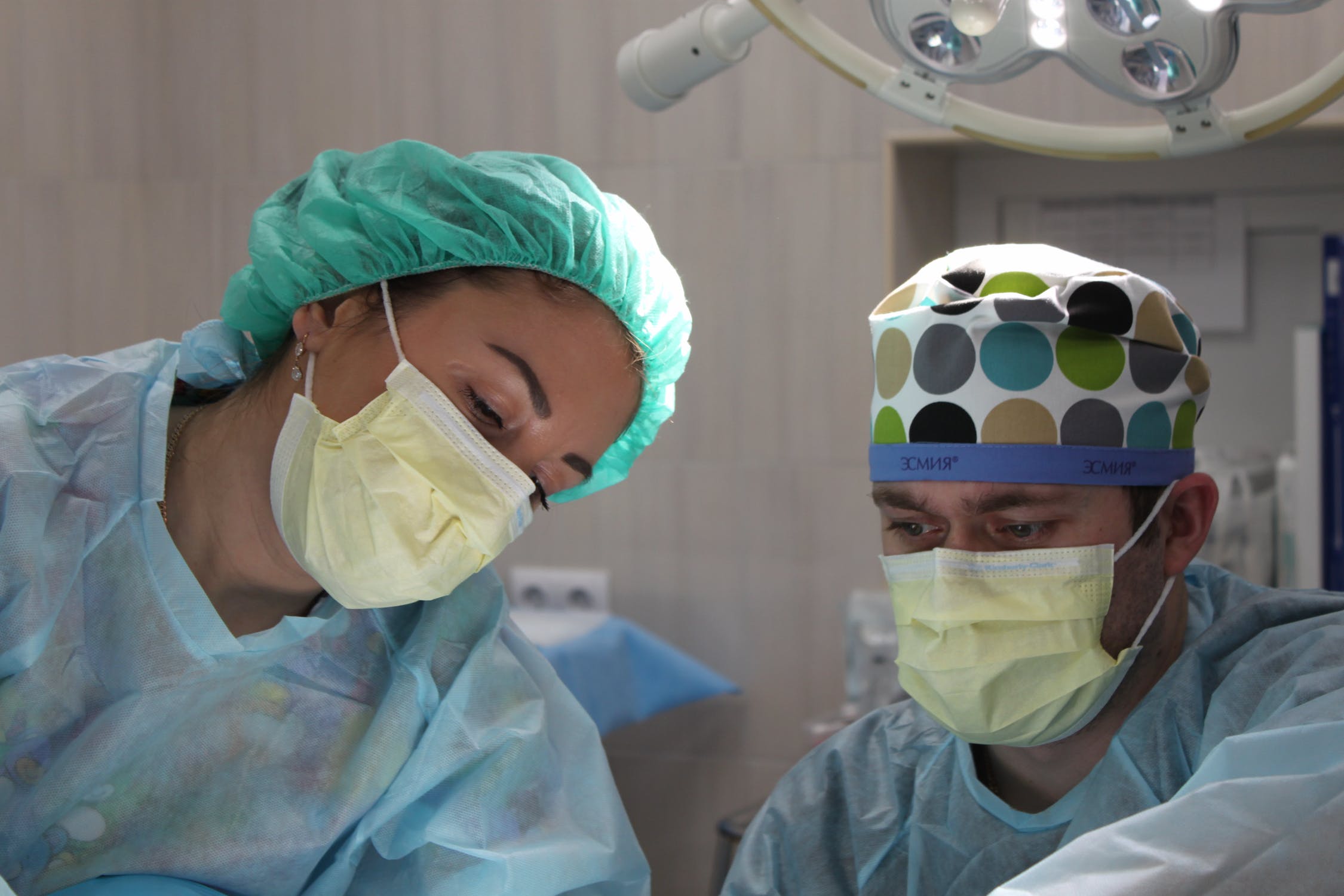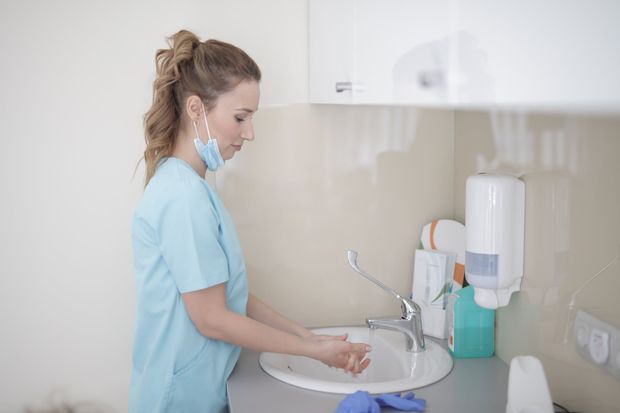Nurses are the key to quality medical care and save lives regularly. Without nurses, it is unlikely that many of us would get the quality treatment at hospitals and clinics that we have come to expect.
Despite this, many people minimize what nurses do or look down on them as "less important than doctors". A lot of this is caused by lasting misconceptions and stereotypes about nurses that are no longer (or were never) true.
The truth is that nurses are incredibly well-trained professionals. They have to go through years of education, take exams like the NCLEX, and spend countless hours in the hospital to learn how to best help people.
We've debunked the top 6 misconceptions about nurses. You may be surprised how much we don’t understand about what nurses do for us!
1. Are Nurses Just Doctors' Helpers?
No! Sure, some work that nurses do helps doctors, but the majority of nursing work is independent and just as vital (or more) to patient care as doctors’ work. Nurses diagnose and treat patients every day, administering tests and giving lifesaving care. Nurses are also generally in charge of patient advocacy and education, which means that it is usually a nurse, not a doctor, who will make sure you know how to care for yourself after leaving the hospital or medical center.
In fact, subserviently following a doctor’s orders could get a nurse in trouble. Nurses have an ethical responsibility to do what is best for their patients, and it is ultimately their call on how to proceed. Nurses save lives, so mentally relegating them to the position of “doctor’s gofers” is not only unfair but also just plain inaccurate.
2. Are Nurses All Women?
It’s true that many nurses are women. In fact, only about 12% of all nurses are male, according to the United States Department of Labor. But that number has been steadily increasing.
Men in the field are highly competent at their jobs, just as their female counterparts are. In fact, the perception of nursing as a “women’s job” is a real problem in the nursing field. Not only does the view that a nurse’s work is feminine hold many men back from pursuing a fulfilling career, but it also fosters some negative perceptions about nursing overall. Somehow, nursing being a “female career” has made it less important work in the eyes of the public, even though it is clearly a very important profession.

3. Are Nurses Less Skilled Than Doctors?
Many people incorrectly assume that nurses are people who couldn’t hack it as doctors or that they aren’t quite smart enough for a medical degree. This simply isn’t true. Almost all nurses purposefully chose nursing as a career and went through a rigorous degree program to qualify. On top of all that, to practice nursing at all, they have to pass the rigorous NCLEX.
Becoming an RN isn’t easy. Many nurses even complete advanced education, furthering their degrees through graduate and post-graduate work. Your nurse is just as intelligent and just as competent as your physician. Nurses teach, perform research, publish papers in journals, diagnose patients, participate in surgeries, treat illnesses, administer medication, and much more. So let's not underestimate their abilities!
4. Are All Nurses The Same?
Nursing isn’t a homogeneous field. Just like in other medical professions, many nurses have specializations and a variety of skill sets. There are pediatric nurses who are specially trained to work with children, there are forensic nurses who evaluate people in police custody, there are oncological nurses who work with patients with cancer, among many, many more.
Some nurses even work independently or have their own nurse practitioner practices. Other nurses take management roles and manage the nursing staff at a hospital or clinic. Each nurse has individual skills used in different ways. Even within a big hospital, nurses don’t just “do it all.” Each nurse has a specific role that they are passionate about.
5. Is Nursing Just Grunt Work?
Despite some of our preconceptions, nurses don’t just give vaccinations. In fact, more and more of such basic tasks are being done by assistants and technicians with lower degrees of training. Nursing requires accomplishing many complex activities during a shift, from performing difficult, life-saving tasks to doing more mundane paperwork. Like most professions, nursing includes some thankless and unpleasant tasks, but this is only a fraction of a nurse’s work.
Nursing is a challenging career at times, but that isn’t because nurses lift boxes and run errands all day; it’s because of the complicated, highly skilled work they must carry out in a high-pressure environment where lives can be on the line. Nursing definitely isn’t easy—and it definitely isn’t just grunt work either. Nurses need sharp minds and are constantly making decisions to improve patient outcomes.
6. Can Anyone Get A Nursing Job?
With stories about nursing shortages in the news and the misconception that nurses are just a type of medical helper, many people get the wrong impression that just about anyone with minimal training can get a job as a nurse. This isn’t true.
The type of nursing education you have received and the experience you have earned matter a lot when you are looking for a job (although your specific nursing school might not matter that much). Other considerations, such as a person’s compassion and desire to care for others, affect a potential nurse’s appeal as someone worth hiring. No matter what the nursing situation, facilities that need nurses still won’t hire just anyone. Only those who are truly qualified and passionate about what they do will make the cut.
In fact, more and more organizations around the country are requiring a BSN (Bachelor’s Degree of Science in Nursing) instead of merely an Associate’s Degree, which means four years of training rather than three.
How Can We Change Negative Perceptions Of Nurses?
When it comes to such an important profession, it is a shame that so many negative misconceptions about nurses cloud the way we see them. It is important that we recognize the work they do for us and respect their judgment and expertise in their field. Speaking up against these six misconceptions is an important first step.
And if you are considering a medical career, don’t let these false perceptions about nursing turn you off from a potentially rewarding career. The world needs more good nurses! If you are, we have a ton of great articles to help you learn efficiently and make the most out of nursing school.
Additional Reading
- How to study for the NCLEX more efficiently
- How to study medications for the NCLEX
- The best way to use NCLEX practice questions
**NCLEX-RN® is a registered trademark of the National Council of State Boards of Nursing (NCSBN), which neither sponsors nor endorses this product.
References
Health. (n.d.). The male nurse: Benefits and percentages of men in nursing. Southern New Hampshire University. https://www.snhu.edu/about-us/newsroom/health/male-nurse
Home. NCLEX. (n.d.). https://www.nclex.com/
Men in nursing: The rising demand for male fnps. Carson-Newman. (n.d.). https://onlinenursing.cn.edu/news/nursing-career-future-many-men
Nsiah, C., Siakwa, M., & Ninnoni, J. P. (2019). Registered nurses’ description of patient advocacy in the clinical setting. Nursing Open, 6(3), 1124–1132. https://doi.org/10.1002/nop2.307
